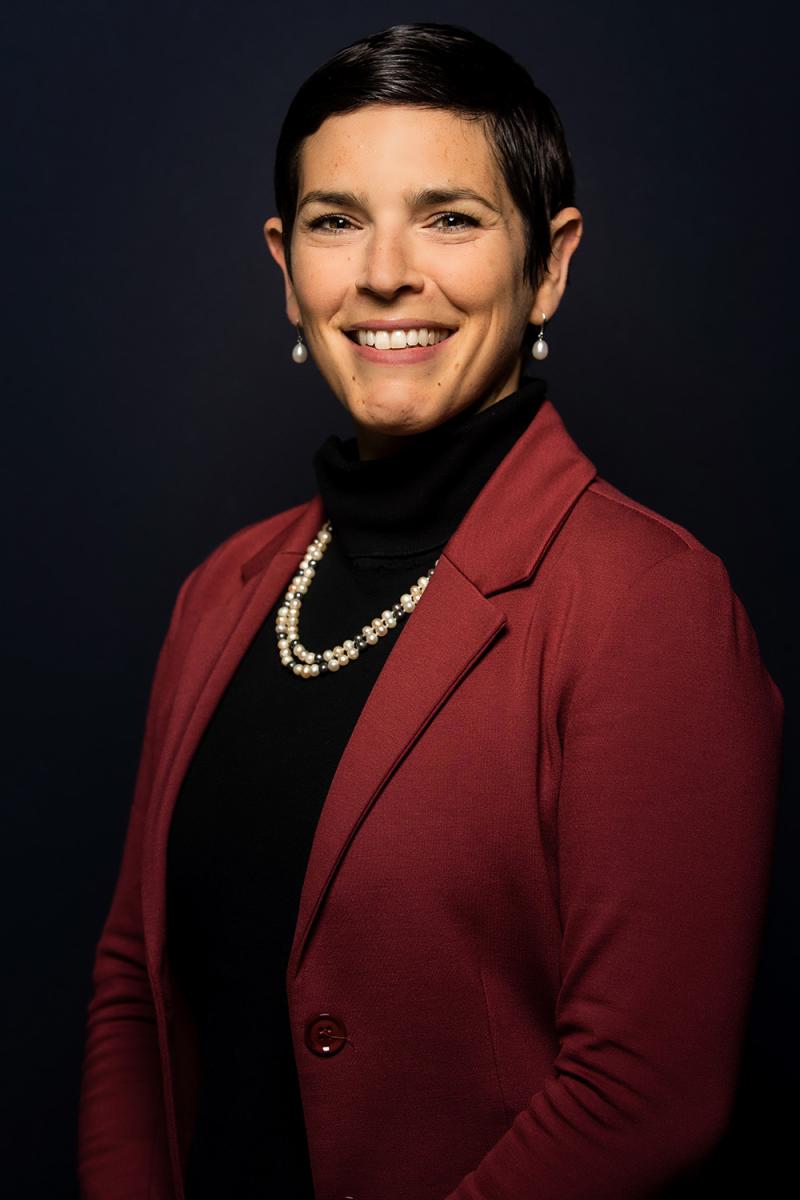Petra Marek (development engineer) and Lynn Braunschweig (technical project management) work in different units at the maxon Group headquarters in Switzerland. Their jobs are in no way connected. Yet there is something they have in common: They are both women working in a male dominated field.
How did you come to choose a technical profession?
Petra: I’ve always liked science, math, and logic. In my vocational training in electronics, I enjoyed the mix of classroom education and work at the company, and between mental and physical tasks.
Lynn: My mother is an emancipated, strong woman, a math teacher and good at making and fixing things. When I was little, I always wanted to be like her. It was she who introduced me to the world of technology. Later, I had to choose between becoming a lawyer or an engineer, and I decided to study mechanical engineering.
What fascinates you about your current jobs?
Lynn: I’m a project manager in the aerospace division and currently in charge of brushless flat motors that are used on Mars. Of course I wanted to become an astronaut when I was little, like so many children. Yet even though I’m not flying into space myself, at least my motors do.
Petra: As a developer of embedded software, I like to completely immerse myself into this abstract world of classes and objects. It ma kes me forget everything around me. But I also like the teamwork. We find the best solutions when we put different approaches and ideas together.
Lynn: For us, teamwork is also key. Every day I am dealing with a wide range of technical disciplines and processes and have to adjust to new situations. It’s important to keep the big picture in mind while at the same time considering the details in the technical departments. Every day is different, and I keep learning new things.
Petra: Another thing that I like: In my job, I get lots of puzzles to solve, and usually I am rewarded with quick feedback: The motor either turns or it doesn’t.
Women are still vastly outnumbered in engineering professions everywhere in the world. Does that affect you in any way in your everyday work?
Petra: As a woman in a technical profession, you stand out. People remember you. If anything, that’s usually an advantage. It makes it easier to start a conversation and make new contacts.
Lynn: A few times I felt that as a woman, I wasn’t taken as seriously as a male employee with similar experience and training. However, I didn’t experience that as a negative thing. Quite the contrary: It motivated me to work harder and prove myself. At maxon, the share of women is relatively high. But still, we could use some more female engineers and project managers, or generally more women in leadership positions.
In your opinion, what is the problem that causes such few women to work in technical professions today?
Lynn: It’s maybe just one aspect among many, but I feel like math is a little overrated when it comes to technical professions. It’s a shame when young girls decide against a career in technology just because math isn’t their strong point. In many jobs, logical, networked thinking is just as much of a requirement, if not more.
Petra: Maybe many girls don’t even think about choosing a technical profession, as it isn’t such an obvious thing to do. In the media you keep reading about unequal pay, worse career prospects, and inflexible working hours. I’m sure that scares some away. On the other hand I must say that I never felt any negative impact myself.

is a project manager in maxon’s SpaceLab, where she is in charge of Mars projects.

is a development engineer at maxon motor. She primarily works on motor controllers.
How do we get more girls and women excited about science and technology?
Petra: High-school teachers could suggest try-out job training in these fields to girls with a knack for technology. However, I can imagine that in the future, more women will be found in technical professions anyway due to the general blurring of gender roles. I hope that the current focus on this topic in the media is a first step in that direction.
Lynn: Not just teachers could contribute more, but all parents with daughters. For example, they should involve them when doing maintenance on a motorbike or fixing something in their free time. Companies, on the other hand, have the responsibility to create modern structures with flexible hours, home office options, and part-time jobs.
Do you have any personal advice for women who are considering a career in technology?
Petra: If you like technology and are having fun with it, then there isn’t much that can go wrong. Just do it! Women shouldn’t be too intimidated by the fact that it’s a male-dominated field. My personal experience hasn’t been anything but positive.
Lynn: To any young woman, I can only recommend choosing a career in technology. Take a risk! I’m also convinced that the next generation of women will find it easier to combine their careers and personal lives.




